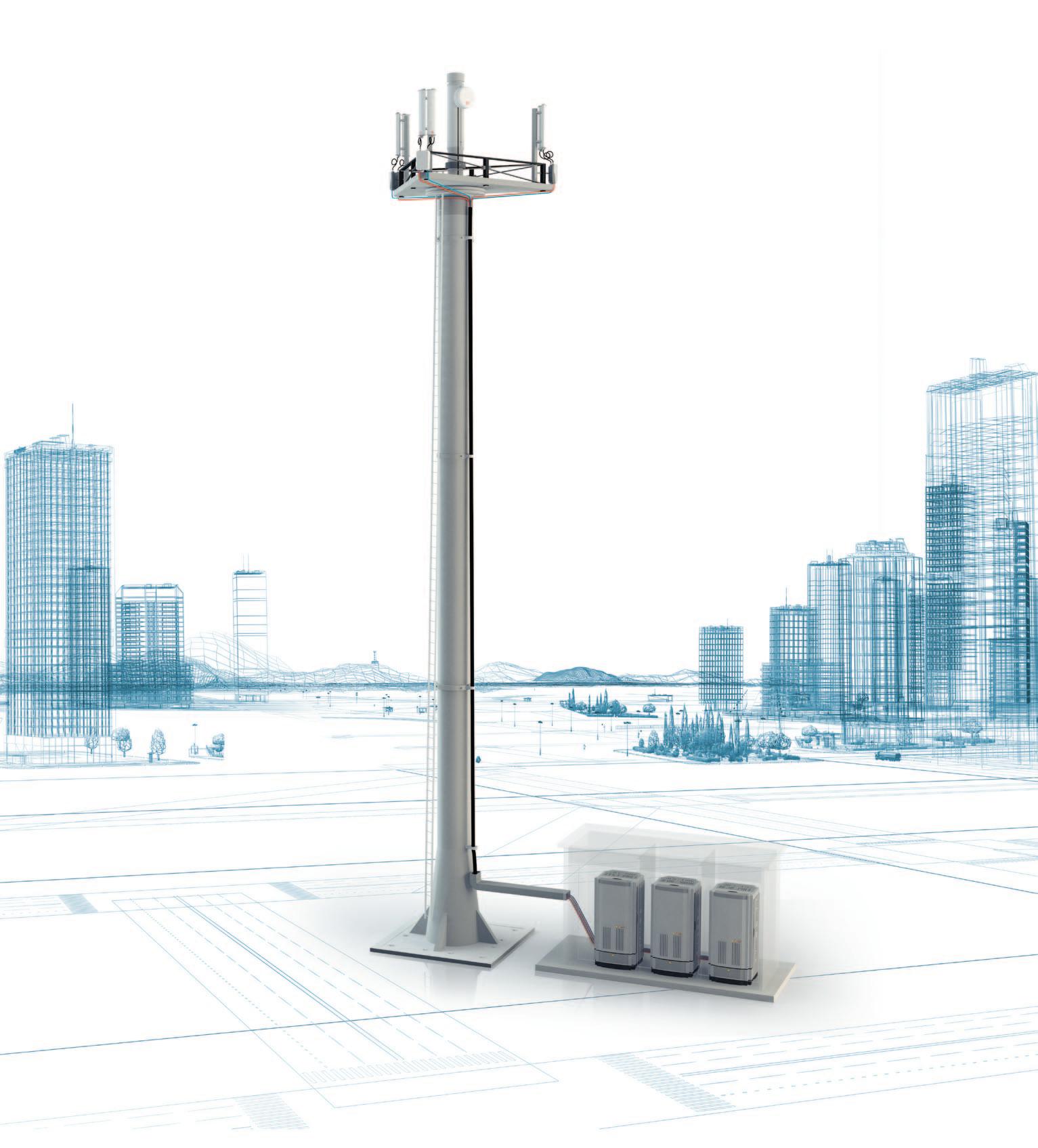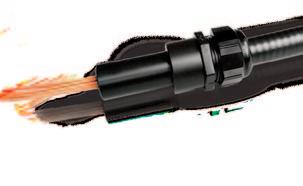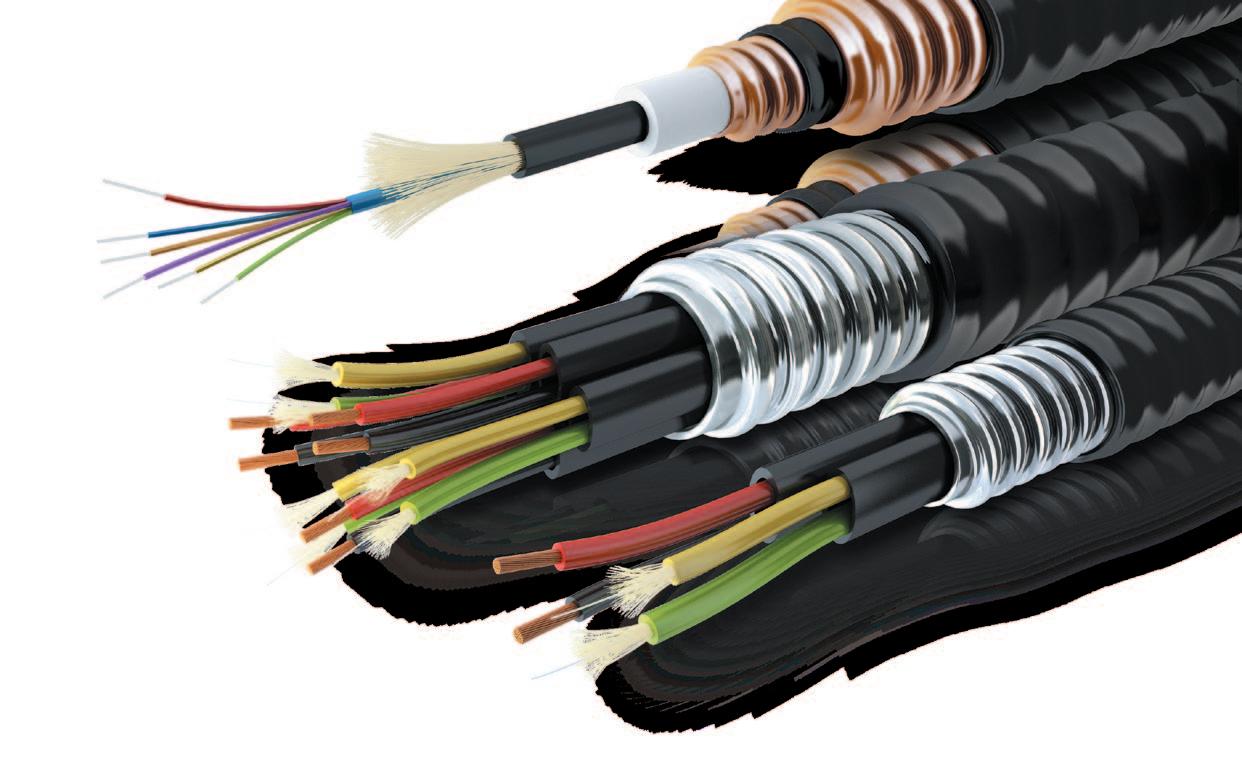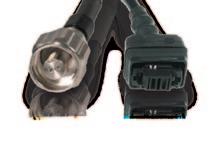RFS Infrastructure Solutions for Remote Radio Head Deployments
Enabling innovative approaches for advanced service delivery








Enabling innovative approaches for advanced service delivery







The business of providing wireless broadband communications services is a continuous balancing act for wireless network operators worldwide. On the one hand, operators must invest in continuously evolving technologies to enable delivery of premium services to subscribers. At the same time, they must find operating efficiencies that offset the capital cost of technology investments required to deliver the high volume, low margin services subscribers want.
Radio Frequency Systems (RFS) provides complete wireless infrastructure solutions that enable efficient delivery of advanced wireless broadband services and a more cost-effective wireless operation. Based on an unrivaled knowledge of wireless infrastructure, RFS’ proven portfolio of lightweight, high performance RF equipment is optimized to provide the best possible performance, compatibility and cost-effective longevity for the full range of the most common bands, applications and emerging technologies, including LTE, CDMA 850, GSM 900 and 1800, PCS 1900, AWS and UMTS 2100.


RFS’ portfolio includes hybrid cabling and connection solutions that make it easier to streamline operations when upgrading or replacing traditional base station configurations with the distributed base station architectures
These solutions are the result of ongoing investments in R&D and a close working relationship with customers, which ensure all products are designed to meet the demanding network infrastructure needs of today and the requirements of emerging communications standards.
The result is lightweight, cost-effective hybrid cabling and connection that make innovative use of materials to reduce tower load and maximize existing infrastructure investments.
Upgrading technology, reducing operating expenditures (OPEX) and decreasing CO2 emissions at cellular sites are constant challenges for operators around the globe. Distributed base station architectures allow operators to address these challenges by installing the RF filter and power amplifier of a base station next to the antenna on a tower or rooftop rather than at the tower bottom or a building basement where old-style macro base stations are typically located, thus creating Remote Radio Heads (RRHs)
But installing RRHs close to antennas requires operators to extend data transmission, power and grounding cables to the RRH on the tower or rooftop. This can be a costly and complicated effort.
The RFS portfolio of hybrid cabling and connection products simplifies the process and lowers the cost of distributed base station architectures. This complete portfolio includes:
HYBRIFLEX™, a revolutionary RRH hybrid feeder cabling solution, which combines optical fiber and DC power in a single corrugated cable
DC-FIT™, the world’s first DC converter solution, which features innovative new technology that turns existing coaxial feeders into RRH power supplies
F/O-FIT™ for site renovation, an optical cabling solution, which allows the reuse of existing deployed coaxial cable to carry a fiber bundle through the inner conductor tube to transport optical signals to a RRH.



HYBRIFLEX™ is an innovative, hybrid cabling solution for new RRH deployments and base station upgrades. It is the first to combine optical fiber and DC power for RRHs in a single, highly flexible, lightweight aluminum corrugated cable that allows operators to ground the cabling system.
This integrated, cabling solution (patent pending) replaces traditional multi-cable approaches, which require additional infrastructure components, long site installation times, difficult implementation accessories and training for installers who must work with the delicate optical fiber.
And it is available in 1-Sector or 3-Sector configurations to allow operators to connect up to three sectors with a single, composite cable.
As a result, HYBRIFLEX™ provides the cabling expenditure reductions, ease-of-installation and operational efficiency mobile operators need to evolve their networks while limiting their power consumption and carbon footprint at cellular sites.
HYBRIFLEX™ is designed to provide maximum flexibility at installation and ongoing reliability long after installation is complete.
To simplify installation, the HYBRIFLEX™ corrugated aluminum outer armor offers outstanding bending characteristics, which allows it to be installed like a conventional coaxial RF cable.
And it is designed to standard RF feeder diameters. Therefore, commonly available RFS CELLFLEX® LCF series feeder accessories can be used in all HYBRIFLEX™ installations. And to further simplify installation, HYBRIFLEX™ is delivered pre-connectorized for fiber optic and DC connectors.
To ensure lifetime reliability, the corrugated aluminum outer armor provides more durable, lightweight protection than polyethylene tubes and at a much lower cost than cable trays. This armor protects the power and fiber optic (multi-mode or single-mode) cables during and after installation. In addition, a protective jacket on each individual cable pair ensures the inner cables are suitable for outdoor use.
The patent pending HYBRIFLEX™ single cable design offers a number of benefits to wireless network operators. As a completely integrated hybrid cabling solution, HYBRIFLEX™ enables data transmission, power and grounding functions to be brought to the RRH and connected with a single conduit. This single cable approach allows operators to reduce the number of RRH cables required from up to nine to one, decreases the wind load and weight on the tower or rooftop, and dramatically simplifies the process and reduce the cost of installation.

The integrated design further simplifies installation requirements by eliminating the need for specialized installation tools, accessories and training for installers. HYBRIFLEX™ can be installed by current installation crews using common RF installation tools and standard RFS accessories. This reduces inventory requirements and simplifies installation logistics by eliminating special accessories. It also eliminates the need for expensive cable trays and ducts and minimizes installation time.
In addition, installation of stripped fiber optic cable pairs directly to the RRH eliminates the need for expensive junction boxes, which further reduces load on the tower or rooftop. Hybriflex™ is easily adaptable to each site, thanks to an innovative sealing kit for main cable/individual cable transition.
Standardized overlength management can be applied to the individual DC and optical cables. This guarantees a customizable implementation of Hybriflex™ to every condition on-site.

Together these benefits allow operators to take advantage of more efficient RRH deployment options, which can improve network roll outs and deliver a total cost reduction per site of as much as 25 percent compared to conventional site installations. And they ensure operators realize significant operational savings throughout the life of the network.
The benefits of HYBRIFLEX™ have been field tested and proven by operators around the world. For example, one of the largest customers in Asia has confirmed this innovative, single cable solution enables fast, simple installation of RRHs and performs as expected in a variety of installation scenarios. Based on field trials, the customer confirmed that HYBRIFLEX™ drastically reduces installation time on 3G radiating systems by 75 percent. In addition, by using HYBRIFLEX™ it was possible to reduce infrastructure material costs, lower implementation time by one working day, and thereby reduce overall service costs.


To further simplify the installation, RFS offers HYBRIFLEX kits, which provide different system lengths and connector types. Kits are available in:
1-Sector configurations, which include factory pre-connectorized 1-Sector cable with a standard length of 20, 30 and 40 m.
3-Sector configurations, which include factory pre-connectorized 3-Sector cable with a standard length of 35 m in increments of 10 m.
A typical length of branched individual length cable of 2 m to 8 m
A corresponding number of 1/2” or 7/8” clamps to fix the main HYBRIFLEX™ cable
A corresponding number of 1/4” clamps or cable ties to fix the branched individual cables
Sealing kits for main feeder/individual cable transition
Wall glands (1/2” or 7/8”)
Earthing kits (1/2” or 7/8”)




One of the key components of the RFS portfolio of RRH solutions is DC-FIT™, the world’s first Direct Current (DC) converter. Another is RFS’ fiber optic (F/O) set for site renovation, which enables reuse of existing RF feeders as ducts for optical fibers. These solutions dramatically simplify upgrades of existing wireless cell sites. They make it easier for operators to migrate to base station architectures that take advantage of RRH configurations and fiber optic technologies.Typically, upgrading or replacing old-style base stations with the latest base station architecture requires operators to dismantle cell sites to install new optical fibers, DC power cabling and equipment. This is time consuming and, in many cases, not acceptable because operators cannot generate revenue from a site that is off-air.
With DC-FIT™ and RFS’ F/O-FIT™ for site renovation, operators can avoid disruptions in service and quickly migrate to RRH architectures by leveraging existing base station hardware. The DCFIT™ converter is designed to connect a DC cable with an existing coaxial cable run. It features innovative technology that turns an existing coaxial foam dielectric feeder into a RRH power supply. As a result, upgrading a conventional coax site to RRH technology is a breeze, compared to the timeconsuming installation of a new DC cable run.
These innovative solutions are available for coaxial cables with a 7/8”, 1-1/4” or 1-5/8” nominal diameter and DC-FIT™ is already in use around the world.
By reusing existing, deployed coaxial cable to transport the DC voltage and optical fibers required by the tower top RRH, operators can significantly reduce rollout planning and site preparation time by up to 50 percent.
Upgrades are simplified because only two DC-FIT™ converters and two F/O-FIT™ for site renovation are required per site. In addition, operators do not need to wait for permission from the base station site’s landlord to perform upgrades. Plus, additional equipment, such as cherry pickers, is not needed to install the converter. And the upgrade does not require an extension of the cable path for the DC cable, or installation of fire protection in the form of wall glands for the power cable.


As a result, DC-FIT™ and RFS’ F/O-FIT™ for site renovation allow operators to perform upgrades where and when they need them. This saves time, money, and operational headaches.

is being used by operators around the world to simplify upgrades of existing wireless cell sites to RRH configurations. For example, Vodafone to take advantage of existing base station hardware as part of its roll out of new units have been installed to date with more on their way as Vodafone prepares its network to meet the growing subscriber demand
Installing RRHs close to antennas allows operators to lower OPEX by reducing power consumption – typically in half. But extending RF transmission, power and grounding cables to new RRH locations can be a costly and complicated undertaking. The RFS portfolio of RRH products eliminates the complications. It significantly reduces time-to-market, timeto-revenue and deployment costs associated with upgrading high performance wireless networks.
With HYBRIFLEX™, DC-FIT™ Converter and F/O-FIT™ for site renovation, operators can quickly and cost-effectively address the space limitations and challenges imposed by weight and wind load allowances associated with distributed RRH architectures. And they can develop custom-tailored deployment solutions that allow them to get to market sooner with efficient delivery of the premium services subscribers are demanding.
All RFS products leverage the extensive experience and expertise RFS has developed designing and deploying wireless and broadcast infrastructure solutions for operators around the world.
With RFS cables and converters, operators can easily create an effective balance between the ongoing need to invest in new technologies and the need to maintain operating efficiencies. They can lower their total cost of ownership. Plus, they can ensure long lasting network reliability and availability while delivering innovative, revenue-generating broadband services to their customers more efficiently.





= DC-Converter which allows to reuse existing deployed coaxial cable to transport the DCVoltage required by the tower top RRH.

= optical solution which allows to re-use existing deployed coaxial cable. A fiber bundle is carried through the inner conductor tube of a coaxial cable to transport the optical signal required by the
6 and 13.3 mm2) available

Radio Frequency Systems (RFS) is a global designer and manufacturer of cable, antenna and tower systems, along with active and passive RF conditioning modules, providing total-package solutions for wireless and broadcast infrastructure.
RFS serves OEMs, distributors, systems integrators, operators and installers in the broadcast, wireless communications, landmobile and microwave market sectors.
As an ISO-compliant organization with manufacturing and customer-service facilities that span the globe, RFS offers cutting-edge engineering capabilities, superior field support and innovative product design.
Customers know they can count on RFS for comprehensive logistical capabilities, flawless execution and outstanding technical skills and support. The company’s dedicated shipment coordinators, hotline staff and on-site engineers go well beyond mere technology, striving to offer tailored solutions to meet even the most complex site-engineering and delivery challenges.
RFS’ value-added services match the exact needs of business partners large and small.
From design to manufacture, ISO 9001 and ISO 14001 certification standards encompass all aspects of RFS’ business worldwide. Every product RFS ships has stood up to the most stringent technical, environmental and quality control tests, continuously meeting and surpassing the expectations of a long list of wireless carriers, transportation and utility operators, and broadcasters.
RFS backs every product bearing its name with a quality guarantee that is unrivaled in the market.
For over a century, RFS has been at the forefront of the wireless communication industry through its unwavering commitment to design and develop the world’s most advanced technology in the fi eld. Dedicated R&D teams, along with a privileged partnership with Bell Labs, are at the source of breakthroughs that are ensuring the mobility of an increasingly wireless world.
RFS is at the frontier of wireless technology innovation, sustaining the boldest ventures to enhance the way people communicate and live.
With on-the-ground personnel in more than 20 countries and on every continent, RFS always delivers on its commitments, providing a comprehensive range of premium products, systems and services. Its clients benefit from all the advantages of a global supplier, while relying on dedicated support from RFS’ local engineering, manufacturing and shipping teams.
RFS’ products, systems and personnel can be found in every corner of the planet. As a global group, RFS is committed to upholding the most stringent environmental, health and safety standards, and seeks to integrate green initiatives in every aspect of its business.
For more information, please contact the nearest RFS sales office:
Southern Europe, Middle East, Africa & India
www.rfsworld.com/sales/semeai
Northern Europe
www.rfsworld.com/sales/euno
Latin America
www.rfsworld.com/sales/latam
North America
www.rfsworld.com/sales/na
Asia Pacific
www.rfsworld.com/sales/apac
www.rfsworld.com





